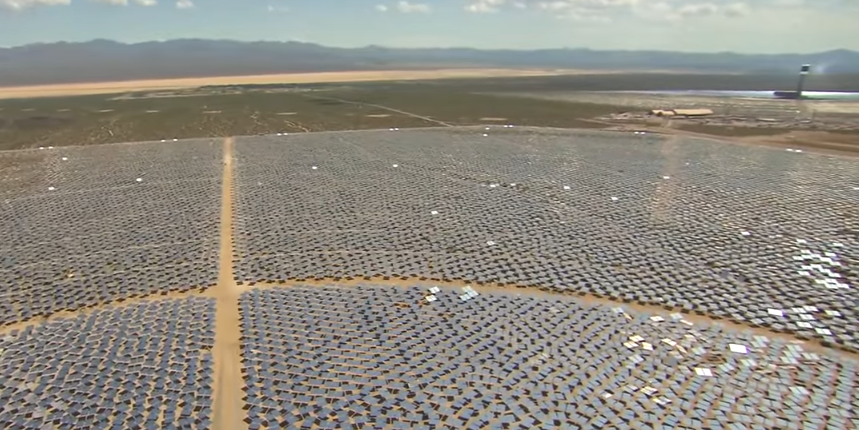
Environmental policy expert Michael Shellenberger claimed that advocacy for solar panels is driven by ideological leanings rather than sound science.
Shellenberger told NTD Television's "The Nation Speaks" that the economics of solar panel production, deployment and recycling shows that the technology has a toxic and dangerous dimension.
"We've been in a sort of hypnotic trance," Shellenberger said, referring to what he characterized as the misguided belief that solar power is an environmentally friendly alternative to traditional forms of power generation like nuclear.
"It's a spiritual pursuit. There's the idea that … we'll protect the natural environment by being dependent on natural energy flows like sunlight. It's not a scientific view. It actually is worse for the environment."
Study: Solar panels are being replaced faster than expected
A recent Harvard Business Review study concluded that solar panels are being replaced faster than expected due to various economic incentives.
"Economic incentives are rapidly aligning to encourage customers to trade their existing panels for newer, cheaper, more efficient models. In an industry where circularity solutions such as recycling remain woefully inadequate, the sheer volume of discarded panels will soon pose a risk of existentially damaging proportions," the researchers of the study wrote.
The study cited the estimates by Garvin Heath, senior scientist at the National Renewable Energy Laboratory, who told PV Magazine that it costs $20 to $30 to recycle a panel versus $1 to $2 to send it to a landfill.
Shellenberger noted that the high recycling cost is just one part of the end-of-life burden of solar. The panels contain heavy metals like lead, which can be released as a toxic cloud if the panels shatter during disposal. (Related: Solar panel manufacturing devastates the environment with toxic heavy metals, warns report.)
"It's hazardous waste. Airelized lead is not something that we've allowed people to be exposed to for over half a century because we know it causes brain damage. So it's as dangerous as lead paint, it's as dangerous as all of the lead-based materials that society has basically phased out until now," Shellenberger said.
Adding to the volume of solar waste is the fact that panels degrade faster than previously thought.
"They degrade about 1 percent a year, not a half a percent a year. And so that means that people have an incentive to change them more quickly," Schellenberger said. "There was this romantic idea that you would get solar panels and you would install them once and then you would never have to do anything again. We now know that people re-install them every 10 years or so."
Solar panels produce more hazardous waste than nuclear power plants
Schellenberger noted that his own calculations showed solar panels produce 200 to 300 times more hazardous waste than the high-level waste that comes out of nuclear power plants, "which is the maybe the most feared waste."
"I think it comes from a kind of a deeply romantic and very ideological place, a very idealized imagination," he said of the push for the adoption of solar.
The solar industry's current circular capacity is not prepared for the overflow of waste that is likely to come. The financial incentive to invest in recycling has never been very strong in solar. While panels contain small amounts of valuable materials such as silver, they are mostly made of extremely low-value materials like glass.
As a result, the production boom of solar panels has left its recycling infrastructure in the dust. First Solar is the only known panel manufacturer in the U.S. with an up-and-running recycling initiative.
Additionally, panels are delicate and bulky pieces of equipment usually installed on rooftops so specialized labor is required to detach and remove them. Some governments may also classify solar panels as hazardous waste due to the heavy metals (cadmium, lead, etc.) they contain. This classification carries with it a string of expensive restrictions as hazardous waste can only be transported at designated times and via select routes.
According to the Harvard Business Review study, the totality of these unforeseen costs could crush industry competitiveness. "The economics of solar – so bright-seeming from the vantage point of 2021 – would darken quickly as the industry sinks under the weight of its own trash," the researchers of the study wrote.
Follow SolarPanels.news for more news and information related to solar panels.
Sources include:
Please contact us for more information.





















